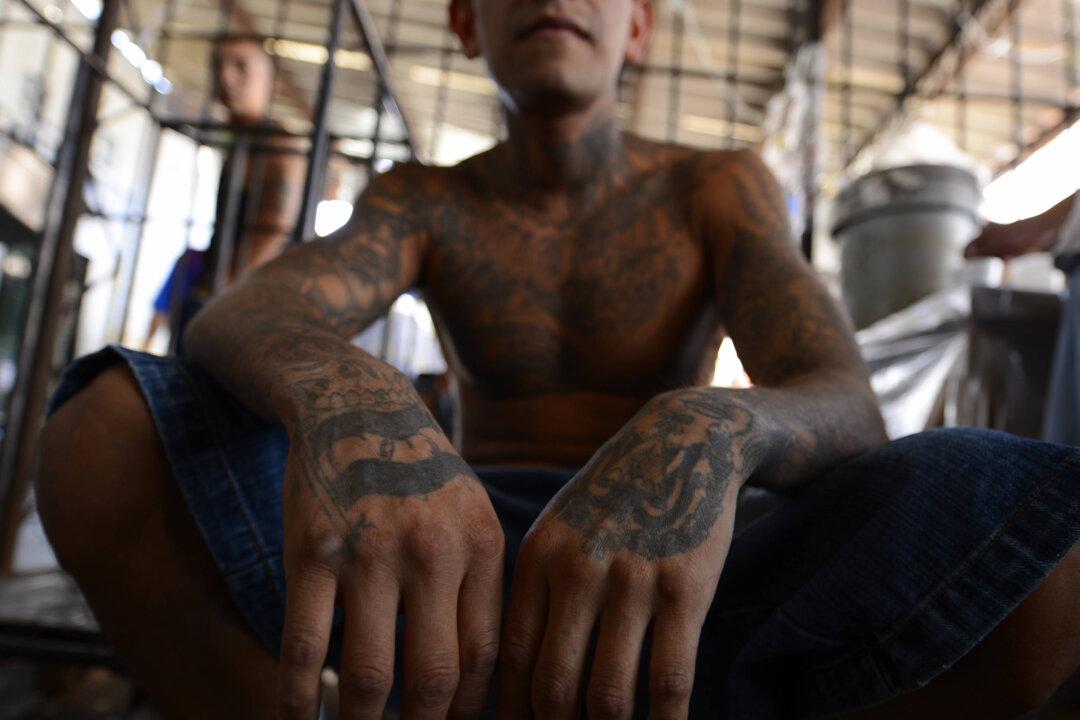WASHINGTON—The vicious nature of MS-13 gang killings came to the fore again last week with the release of court documents detailing a grisly murder in Maryland.
Ten MS-13 members stabbed a victim more than 100 times, decapitated and dismembered him, and ripped his heart out before throwing him into a grave in Wheaton Regional Park, documents say.





